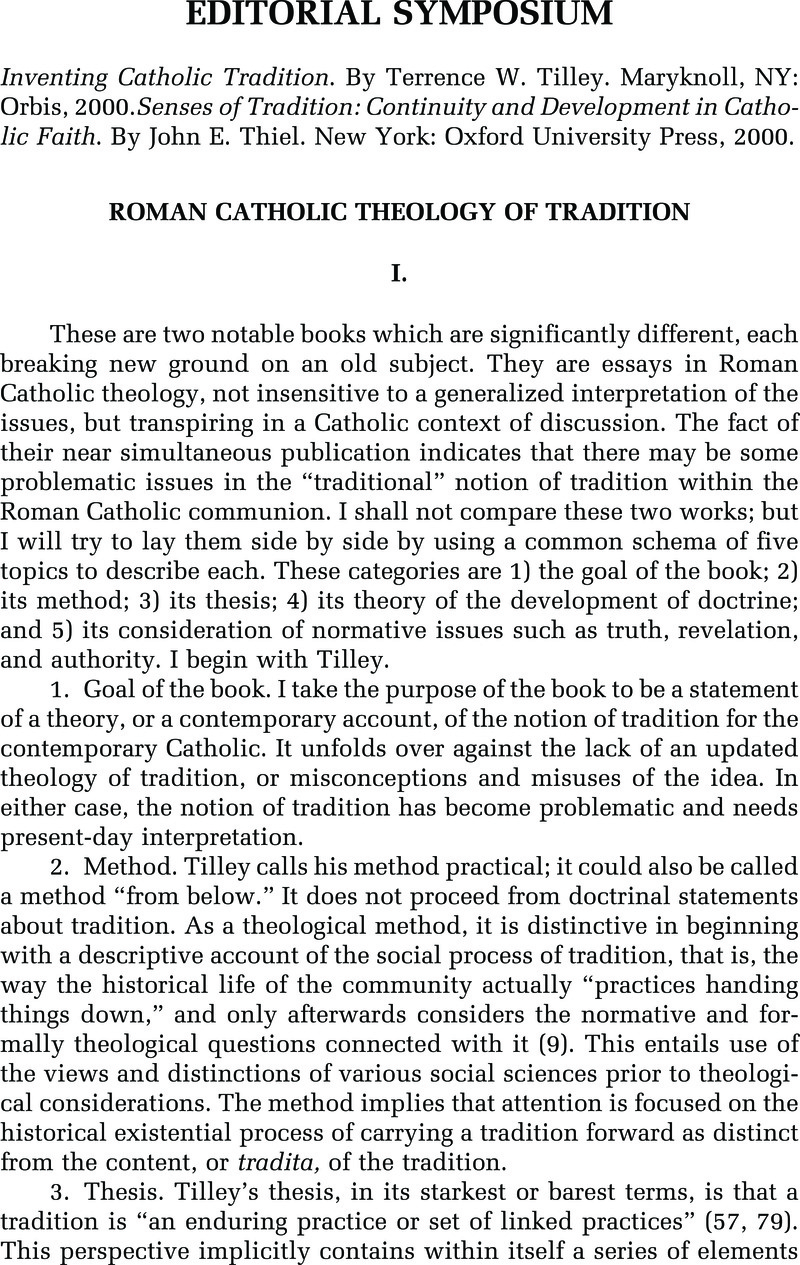No CrossRef data available.
Article contents
Roman Catholic Theology of Tradition: V
Published online by Cambridge University Press: 09 September 2014
Abstract

- Type
- Editorial Symposium
- Information
- Copyright
- Copyright © The College Theology Society 2002
References
4 The following remarks are not an exact transcript of my oral presentation as I worked from an outline and notes. I have tried to reconstruct my comments as coherently as possible.
5 Thiel, John E., “Perspectives on Tradition,” CTSA Proceedings 54 (1999): 1–18.Google Scholar I reviewed Thiel's Senses of Tradition for the Journal of Hispanic/Latino Theology 9/1 (August 2001): 67–69.
6 “Author's Response [to ‘Four Perspectives’ on Inventing Catholic Tradition by Ann Riggs, Elizabeth A. Johnson, William Portier, and Roberto Goizueta],” Horizons 28/1 (Spring 2001): 115–19.
7 I hope that Espín himself will write a book describing the traditions he knows so that those voices can be heard. During the discussion, he did not say how considering those voices might have improved either my text or Thiel's—so we are no more the wiser for his critique at present. Since chapter five of Inventing Catholic Tradition is devoted to formulating the “grammar” of the Catholic Intellectual Tradition, that is one place where a contribution might have been most useful. In his review of Inventing Catholic Tradition (Journal of Hispanic/Latino Theology 8/4 [May 2001]: 62–65), Espín recommended R. Fornet-Betancourt and R. Kusch as scholars whose work I ought to have considered. Unfortunately, I had never heard of either of them. [There are no primary nor secondary sources in English (according to my main research tools, the Philosopher's Index and the ATLA Index);] nor are references to be found in the indices to Espín's works. If no one has written about either person in places I can be reasonably expected to start my research and no one I have come across during the course of research has written of them, how can I, an Anglophonic scholar—even though I read the German and Spanish in which Fornet-Betancourt and Kusch write—get a clue about the existence or importance of their work? Their potential contributions are not at all clear from either Espin's review or his comments at the symposium.
8 This thinness in the concept of tradition is also found in her very provocative and informative Theories of Culture: A New Agenda for Theology (Minneapolis: Fortress, 1997).


